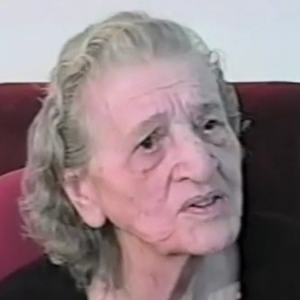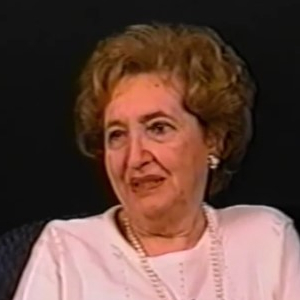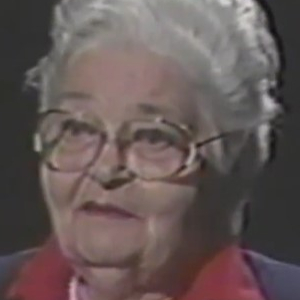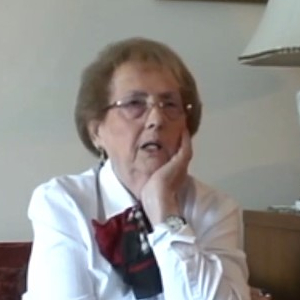Barry Davis
Barry describes the conditions of the death march the prisoners of Auschwitz were forced on.
Barry Davis (born Beri Davidovics) was born July 13, 1929 in Mukačevo, Czechoslovakia (presently Mukachevo, Ukraine). He was the youngest of nine children of Ezra and Yetta Davidovics. His family was fairly religious, and practiced Judaism moderately. In 1938, Mukačevo became part of Hungary after it was annexed. Barry attended school until grade 8. In 1943, Barry started noticing effects of the war. His four older brothers were forced to dig army trenches, and Jews were forbidden from congregating and going out, and had to wear yellow stars.
In 1944, Barry and family were forced into a ghetto in Mukačevo. After two months in the ghetto, they were taken to a brick factory for three months. They did not work in this factory. In 1944 Barry and his family were taken to Auschwitz II- Birkenau. His parents and four of his siblings were killed during selection, and one of his brothers was killed in a gas chamber a few weeks later. Barry was taken to Auschwitz I for about six months where he attended a school that was set up to teach prisoners how to lay bricks.
In December 1944, the camp was evacuated, and the prisoners were forced on a death march. The prisoners were then loaded onto wagons and taken to Mauthausen in Austria, where Barry broke his arm. After six weeks in Mauthausen, Barry was transferred to a nearby camp; Ebensee.
In May 1945, Ebensee was liberated by American forces. Barry was taken to a hospital for his broken arm, and then decided to return to Mukačevo. In Mukačevo he found one of his brothers and one sister. Of the eleven people in his immediate family only four remained at the end of the war. Barry and his siblings decided to move to Budapest because there was a large number of refugees living there. In Budapest they found one of their brothers.
After the war, Barry went the ORT school in Belgium where he became involved in Zionist organizations that helped people illegally immigrate to Israel. In this organization (Irgun Zeva’I Le’ummi), Barry would gather people and help them cross the border into Israel. His work sometimes resulted in him being detained in jails in Belgium, Holland, and Paris for smuggling people.
In 1948, Barry migrated to Israel and joined the Israeli army. In 1952, Barry arrived in Canada. He settled in Ottawa and got married to Selma. They had four daughter and he worked as a butcher, insurance salesman, and real-estate agent.
Barry Davis died in 2013 and his full testimony is part of the Canadian Collection of Holocaust survivor testimonies. It is preserved in the USC Shoah Foundation’s Visual History Archive and accessible through the Ekstein Library.
Barry DavisThere was no value of human life. Nothing. Nothing. Meaningless.
Testimony to discover
-
Rescuers

Bouena Garfinkle
Bouena describes how she smuggled Jewish children from Greece through Turkey into Israel.
Listen -
Camp

Clara Lengyel
Clara recalls being sick and getting offered to be taken to a hospital. After giving her name, the Blockälteste warned her and the other girls in her...
Listen -
Family Separation

Esther Honig
Esther remembers having to give her baby son Elie up for his safety. She remembers Mlle. Counard’s niece taking him and where he was taken.
Listen -
Hiding

Eva Gregus
Eva remembers when her family's hiding spot was discovered by SS officers. Her brother-in-law and another man in hiding were shot, but Eva and the res...
Listen
Educators & Students
Educational guides
Check resources